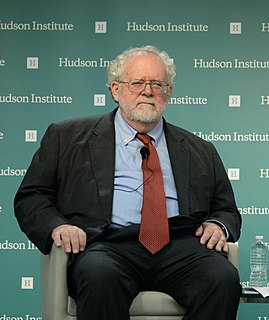A Quote by Stacy Schiff
We're talking about, essentially, the Roman historians, who wrote Cleopatra into the story mostly so that they could talk about the rise of Rome. And that is one of the problems, of course, in recounting her life. She's only ever apparent to us when there is a Roman in the room, or when her story intersects with the rise of Rome.
Related Quotes
I heard a story about a woman who grew up in Texas. When she was having trouble in her life, she would visit her grandmother, who lived nearby and always had a kind word and some wisdom to pass on. One day she was complaining to her grandmother about some situation and her grandmother just turned to her, smiled sadly, and said, "Sometimes, darlin', you've just got to rise above yourself in this life." I've remembered that wise advice many times as I've faced trouble in my life.
When Edward Gibbon was writing about the fall of the Roman Empire in the late 18th century, he could argue that transportation hadn't changed since ancient times. An imperial messenger on the Roman roads could get from Rome to London even faster in A.D. 100 than in 1750. But by 1850, and even more obviously today, all of that has changed.
In the agreement to rescue Rome [i.e., the Roman Catholic Church's hierarchy] from the predicament of losing its world control to Protestantism, and to preserve the spiritual and temporal supremacy which the popes [had] 'usurped' during the Middle Ages, Rome now 'sold' the [Roman Catholic] Church to the Society of Jesus [i.e., the Jesuits]; in essence the popes surrendered themselves into their hands.
To the Jews, Rome constituted the quintessence of all that was odious and should be swept away from off the face of the earth. They hated Rome and her device, arma et leges, with an inhuman hatred. True, Rome had leges, laws, like the Jews. But in their very resemblance lay their difference; for the Roman laws were merely the practical application of the arma, the arms...but without the arms, the leges were empty formulae.
My mother lived her life through movies and books - she read everything there was to read. And she read to me every night. I never went to sleep without her reading to me. And she fantasized about the book and she would talk about it, the place, and you would think that after she read the book and after she told you stories about it, that she had actually been there. I learned about story from her, and I learned the value of a great story, and the value of great characters.
If you want a symbol of Roman power and strength look no further than the Praetorian or Imperial Guard. We could take this one step further. It was this world of Roman power into which Christ came, in which the Apostles ministered, in which the New Testament authors wrote, and in which Christianity came into being. And to all of those things, Rome stood opposed, violently opposed.
One of my patients told me that when she tried to tell her story people often interrupted her to tell her that they once had something just like that happen to them. Subtly her pain became a story about themselves. Eventually she stopped talking to most people. It was just too lonely. We connect through listening. When we interrupt what someone is saying to let them know that we understand, we move the focus of attention to ourselves. When we listen, they know we care. Many people with cancer talk about the relief of having someone just listen.
The thing I always guard against when I'm talking to people I'm working with about a script is that there's a thing I don't like and it's called "talk story." It's when you're talking about the story; the characters are tasked with talking about the story instead of allowing the audience to experience the story.
One thing about my mother is that she has her taste: She knows what she likes and what looks good. It's not studied. There is no insecurity in what she is going to wear, and I think that translates into effortlessness. Her career has been a steady rise, and it hasn't been about the fashion of the moment. It's been because she has kept to her style. She didn't go grunge when it was grunge, or 70's when it was 70's. It's about being secure with what you like and not worrying about what's in fashion that particular day. That's what I admire about her.







































